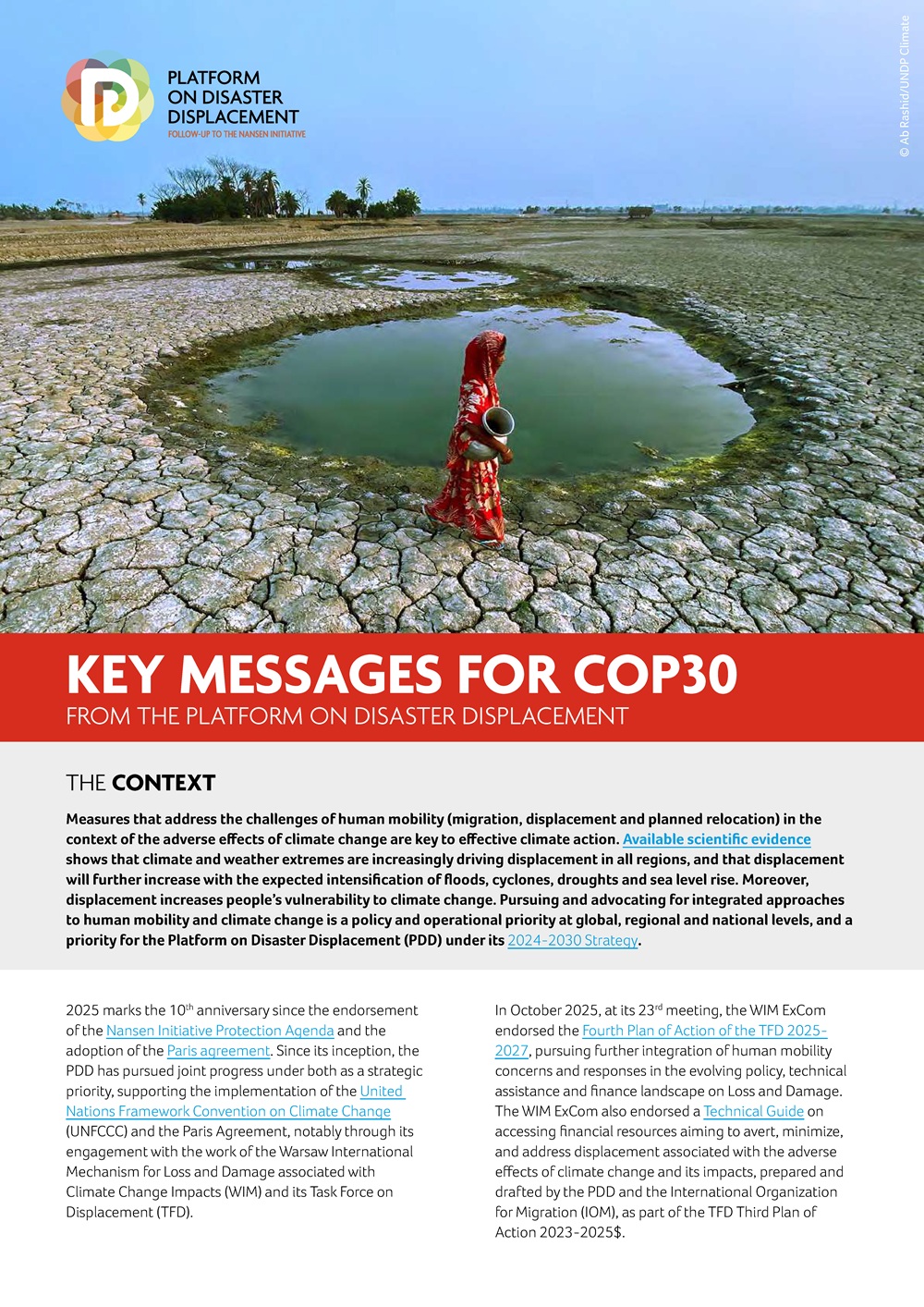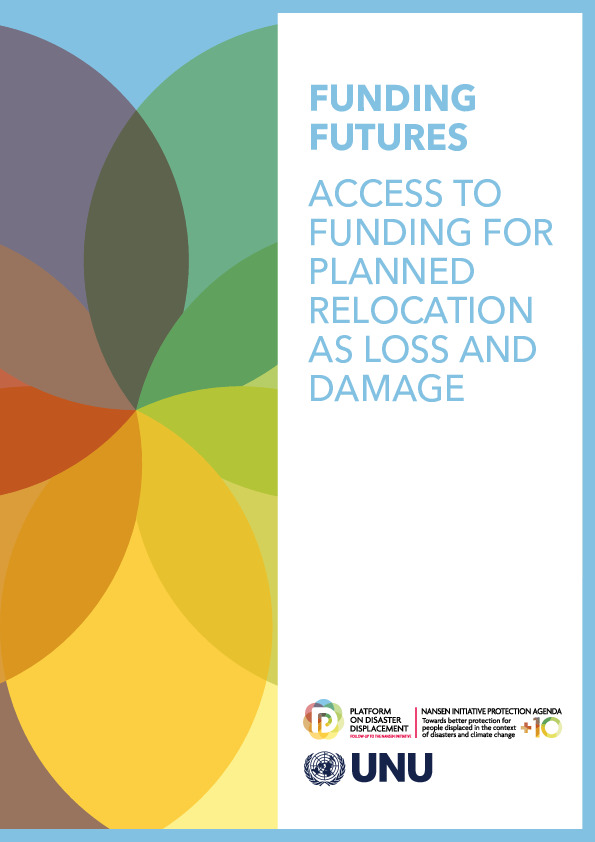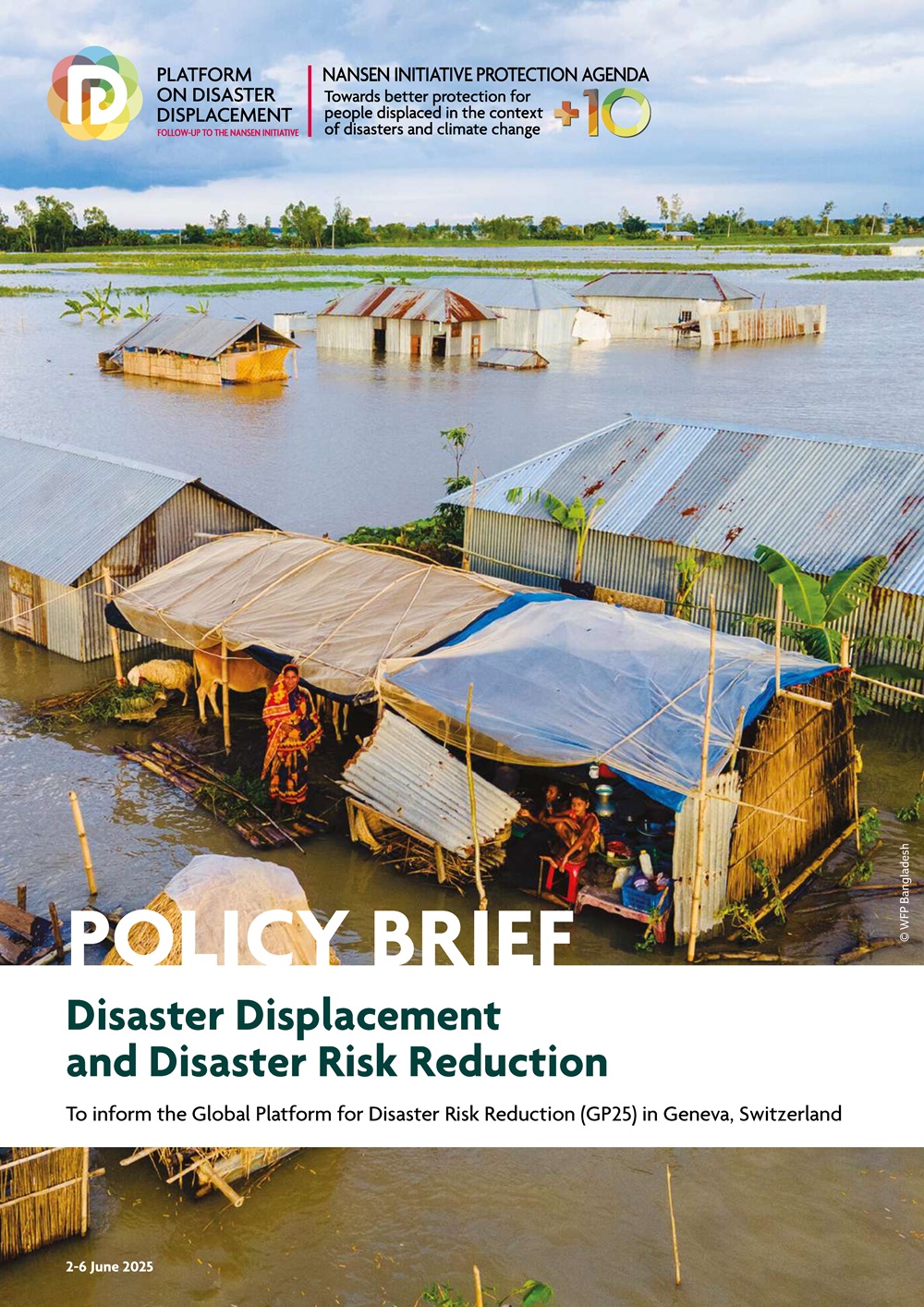Assessing the Evidence: Climate Change and Migration in the United Republic of Tanzania
Climate change is a major concern for the international community, and its impact on migration, including displacement, is the object of increasing concern for policymakers and researchers. It is now widely recognized that migration in both its forced and voluntary forms is increasingly impacted by environmental and climatic factors and that migration in turn also impacts the environment.
The majority of Tanzanians live in rural areas and depend on rain-fed smallholder farms and pasture that are expected to suffer significant impacts as a consequence of climate change. This report attempts to comprehensively address climate change impacts in the United Republic of Tanzania, current mobility patterns and trends, and the possible linkages between them, focusing mainly on the internal, rural-to-rural migration flows that are still prevalent in the country. It provides an analysis of the existing research on both climate change and migration in the country, drawing from evidence from the wider climate and migration literature. The main findings establish a first evidence base for future policymaking and investigation in the country.
This report is a joint effort between the Potsdam Institute for Climate Impact Research (PIK) and IOM, supported by a number of external contributors.




